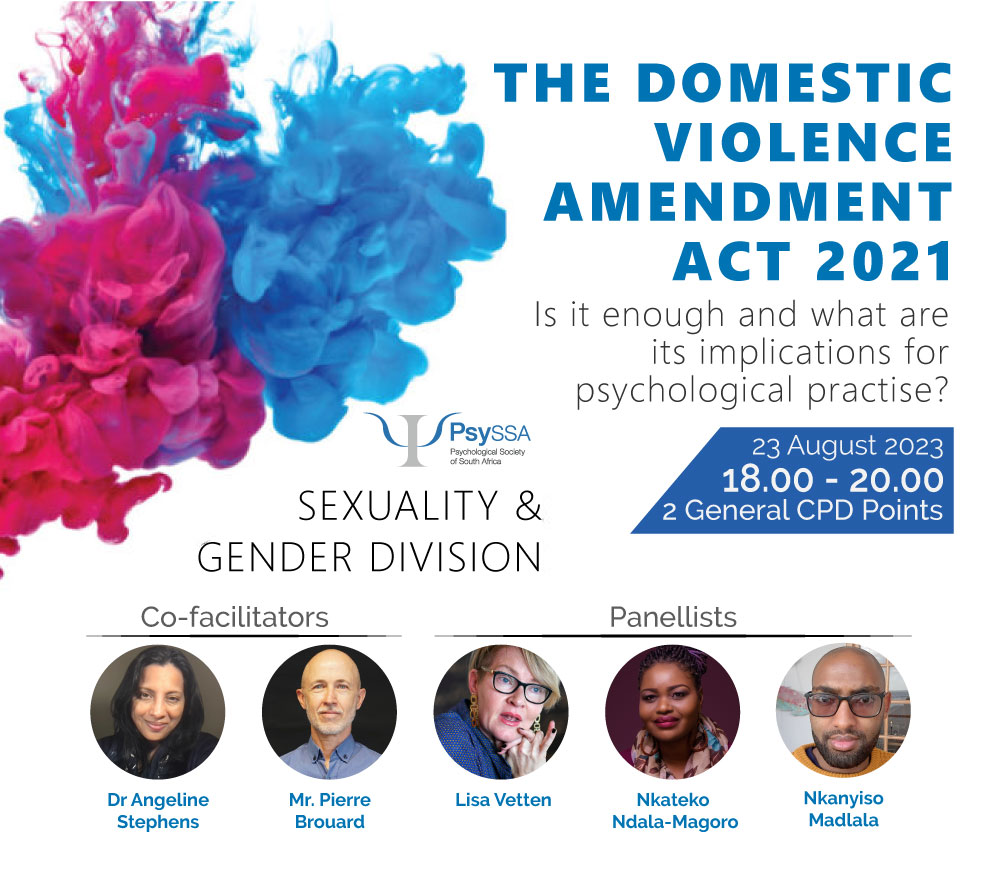
Divisional Webinar: The Domestic Violence Amendment Act 2021: Is it enough and what are its implications for psychological practise? – Recording Out Now!
Divisional Webinar: The Domestic Violence Amendment Act 2021: Is it enough and what are its implications for psychological practise? – Recording Out Now!

Did you miss our divisional webinar: The Domestic Violence Amendment Act 2021: Is it enough and what are its implications for psychological practise?
Don’t worry! Watch the recording below!
Webinar Abstract
The Domestic Violence Amendment Act 2021 (DVAA), in tandem with the Criminal and Related Matters Amendment Act, and the Criminal Law (Sexual Offences and Related Matters) Amendment Act, aims to strengthen the protection and support of vulnerable persons, and increase the scope for reporting and monitoring.
However, the most recent crime statistics reveal an enduring pattern of violence that target women and other marginalised and vulnerable persons, and are increasingly perpetrated in places that are traditionally associated with safety, such as homes and schools. In light of the amended Acts and what they hope to achieve, we ask, to what extent does the DVAA benefit and protect vulnerable groups, in particular, women, children, queer persons, and persons with disabilities? What is the likely impact of the DVAA on the incidence of GBV and femicide, particularly for these vulnerable groups? Inter alia, certain functionaries (i.e. medical practitioners, health care personnel, social workers, educators and caregivers, who could mental health practitioners) who reasonably believe or suspect that an act of domestic violence has been committed against a child, a disabled person, or an older person must report such belief or suspicion to a social worker or the SAPS. What might need to be done differently and what are the implications for the work of psychologists, particularly in relation to the new assessment and reporting obligations?







